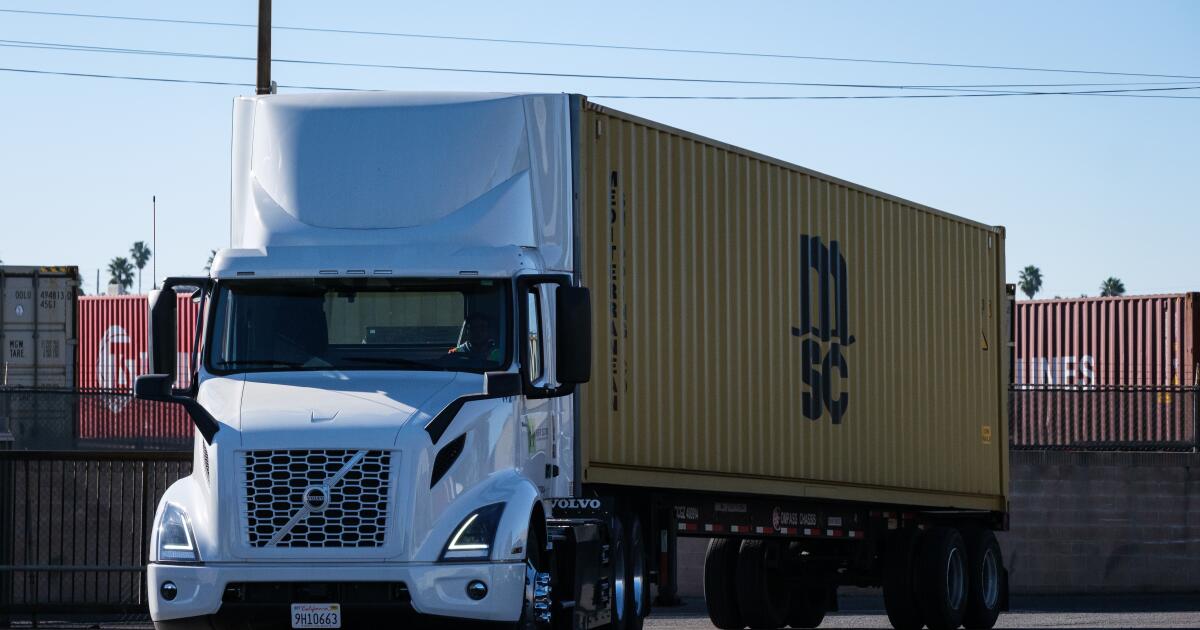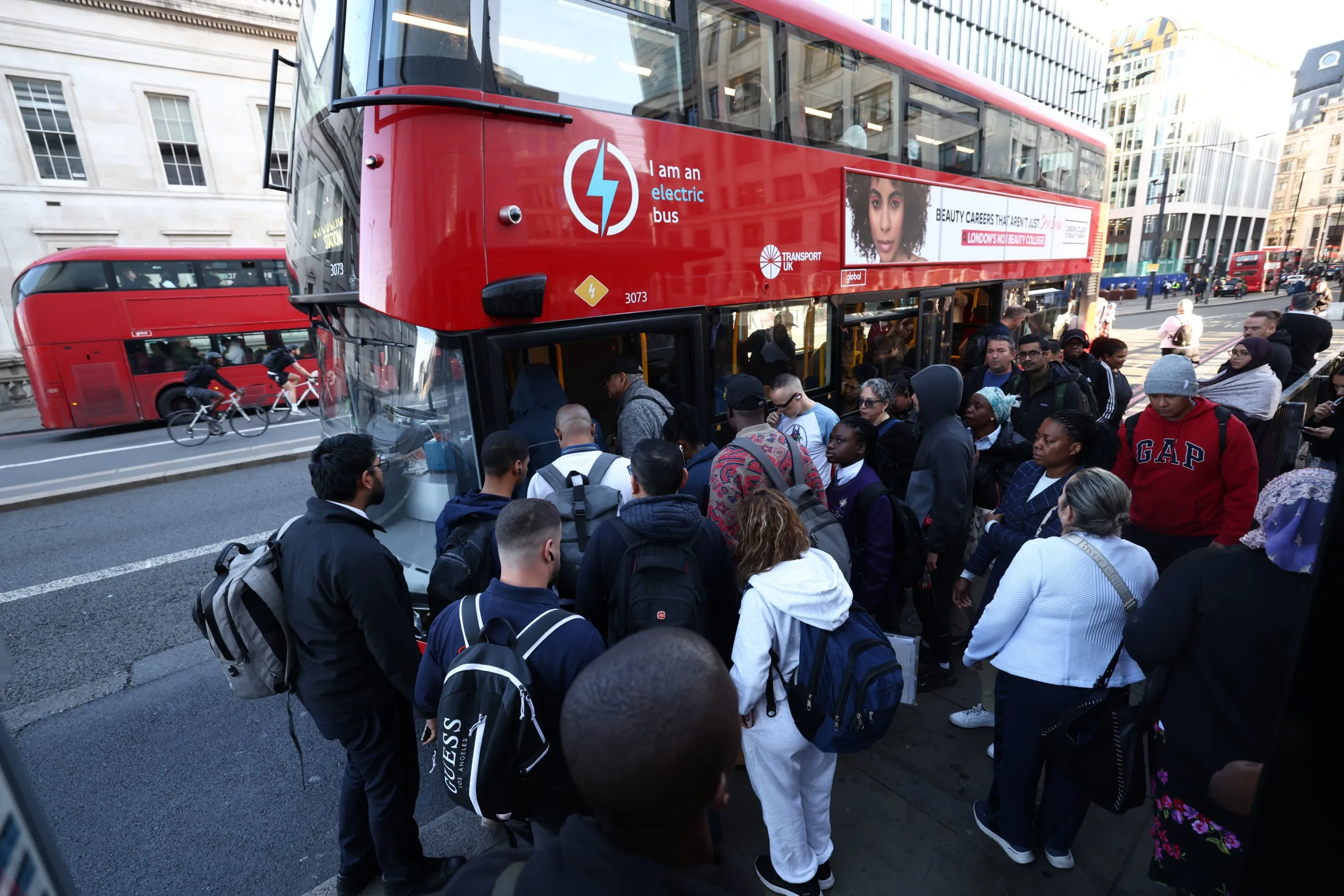
California’s air is under attack — by the very companies that promised to clean it up.
In 2023, truck manufacturers struck a deal with the California Air Resources Board to drastically reduce emissions and invest in electric trucks. This summer, however, several of the companies — Daimler Truck, Volvo Group, Paccar and Traton — backed out of the partnership and sued California, with support from the Trump administration. Now fossil-fuel-aligned corporations are leveraging political connections to weaken oversight, erode environmental protections and entrench their dominance.
This is no longer just about truck emissions. It’s about who gets to write the rules that govern our economy and who gets to decide how polluted our state will be. It’s about defending democracy from corporate overreach.
Likely seeing an opportunity to profit from diesel under new federal leadership, the major truck manufacturers doing business in California are injecting instability into the very market they once sought to stabilize. This is political opportunism, plain and simple.
The 2023 deal, known as the Clean Truck Partnership, was rooted in trust and a shared interest in predictable, stable rules during the transition away from fossil fuels. It wasn’t a regulation or a law; it was a collaboration — an experiment in handshake agreements that now looks like a cautionary tale for regulators and communities everywhere: Corporations can walk away from deals like this the moment political winds shift or the quarterly earnings dip.
The manufacturers’ gratuitous lawsuit comes alongside a proposed rollback of the Environmental Protection Agency’s greenhouse gas standards and a surprise Federal Trade Commission move to condemn the partnership. The commission issued a statement closing an investigation it never publicly announced, after the companies sent letters playing victim. Is it any surprise that Trump’s federal lawyers jumped in days later to sue California along with the truck makers?
The consequences of breaking the agreement are real and devastating. Diesel freight pollution has long hit hardest in low-income neighborhoods and communities of color near ports, warehouses and freight corridors, causing higher rates of asthma, heart disease and cancer. Rolling back the Clean Truck Partnership means more diesel trucks on California roads, more hospital visits and more lives cut short. It’s an assault on environmental justice that tells Californians their health is expendable.
And everyone pays. Delaying clean truck adoption locks fleets into high and volatile diesel prices and undermines U.S. competitiveness. The manufacturers themselves are maintaining that crisis by discouraging the shift to electric trucks: California has documented a $94,000 markup on some electric trucks in the U.S. compared with Europe.
When a handful of corporations can derail public policy this way, states must push back. California tried a compromise; now it must defend its right to set stronger standards, invest in clean infrastructure and refuse to subsidize companies that break their commitments.
California’s leadership on clean transportation has helped it become the world’s fourth-largest economy. Its authority to set its own standards has driven innovation, created jobs and put more zero-emission vehicles on the road than in any other state. The public wants clean air and modern infrastructure. The choice is clear: double down on clean truck commitments or cede leadership to China and watch our industries and economy fall behind.
A predictable market is essential for corporate investment in the energy transition. California brokered this partnership to give manufacturers the certainty they said they needed and say they still need. Now some of those same manufacturers are adding uncertainty by trying to revert to older standards and delay the transition. But it must come, and the sooner the better — for manufacturers, Californians and the nation.
There’s still time to do the right thing. The truck makers who broke their word can still step up to electrify trucks. And the manufacturers who have not joined the lawsuit against California — Cummins, Ford, General Motors and Stellantis — should publicly reaffirm the goals of the Clean Truck Partnership, follow through on their commitments and reap the rewards. If these companies choose to stand with California now, they won’t just be honoring a promise; they’ll be helping build an economy that creates good jobs, drives innovation and secures a competitive future for American freight.



